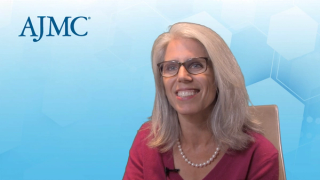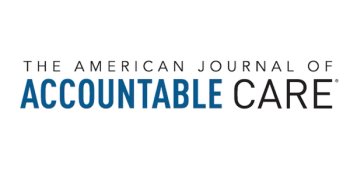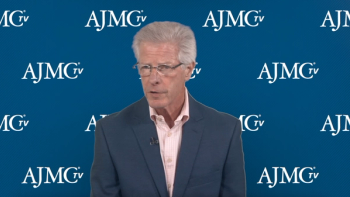
Value-Based Care
Latest News
Latest Videos

CME Content
More News

This study found extensive variation in general internal medicine physician prices and that high-priced physicians provided fewer low-value services but had higher spending on these services.

Assessing Surveillance Utilization and Value in Commercially Insured Patients With Colorectal Cancer
Trends in surveillance testing after treatment for colorectal cancer remained relatively stable recently, and patients who overutilized surveillance measures had quicker recurrence detection but higher costs.

Taking Action Against the Rising Mental Health Crisis: Efforts From Health Plans, Congress, and More
Marking Mental Health Awareness month, stakeholders involved in the delivery of behavioral health care services discuss current efforts underway—spearheaded by the novel 988 emergency hotline—to address the growing mental health crisis.

UPMC Health Plan, RxAnte, and Mosaic Pharmacy Services outlined how they are operating a value-based pharmacy care management program within Community HealthChoices, Pennsylvania’s managed Medicaid long-term services and supports (LTSS) program, at a recent conference.

An editorial in response to the editor in chief’s December 2021 letter discusses evidence supporting the cost-effectiveness of an innovative advance care planning initiative.

To achieve health equity, experts from CVS Health discuss why we must invest in programs that improve access to health care for historically marginalized communities, address social determinants, boost health education, increase representation in all levels of health care delivery, widen access to clinical trial research, and more.

Use of low-value care services during COVID-19 exhibits substantial heterogeneity but, on average, shows declines similar to the use of high-value services; low-value care use lags behind high-value care use in the rebound phase.

Stephen Schleicher, MD, MBA, chief medical officer of Tennessee Oncology, talks about lessons learned from the Oncology Care Model (OCM) and Medicare that are being used to innovate toward value-based care.

Reducing low-value care means saving money, reducing potential harm, and creating room for high-value care to be delivered in the United States.

Panelists touted the ability to pay for items and repairs to keep Medicare beneficiaries healthier at home, avoiding potentially costly hospitalizations and complications.

Without addressing rising costs, the problem of underinsurance in health care coverage will remain, said panelists at the 2022 V-BID Summit, discussing some of the smaller steps that are being proposed or are already in place to try to ease the financial burden.

At the 2022 V-BID Summit, hosted by the Center for Value-Based Insurance Design at the University of Michigan, representatives of CMS and the Commonwealth Fund gave an update on the efforts to monitor, evaluate, and improve health equity in the United States.

Dennis P. Scanlon, PhD, professor of health policy and administration at Pennsylvania State University and editor-in-chief of The American Journal of Accountable Care®, talks about major systemic and fundamental barriers to health systems becoming learning health systems.

Patients who cardiologists see once every few months are getting handed over to pharmacists who can monitor them more frequently and get them to their goals, said Crystal Zhou, PharmD, assistant professor of Clinical Pharmacy at the University of California, San Francisco (UCSF).

Angela Storseth-Cooper, associate director, Government Relations & Public Policy, The US Oncology Network, discusses state-level legislation that community oncology practices can leverage to address issues involving pharmacy benefit managers and the vertical integration of health plans and specialty pharmacies.

Lalan Wilfong, MD, vice president of Payer Relations & Practice Transformation at The US Oncology Network, speaks on how use of health economics and outcomes research has benefitted patient care in the community oncology setting and where it can be further leveraged in the pursuit of value-based care.

The redesigned accountable care organization (ACO) model is called the Realizing Equity, Access, and Community Health model and is scheduled to begin in 2023.

Speaking during a webinar presented by the National Alliance of Healthcare Purchaser Coalitions, experts weighed the pros and cons of employer high-deductible health plans (HDHPs) and outlined steps to address challenges raised.

Dennis P. Scanlon, PhD, professor of health policy and administration at Pennsylvania State University and editor-in-chief of The American Journal of Accountable Care, discusses his 2021 end-of-year letter calling on health system leaders to learn and innovate in real time.

Kenneth Cohen, MD, FACP, executive director of clinical research at UnitedHealth Group Research and Development and senior national medical director at OptumCare, discusses areas where low-value care is more prevalent and the shift to high-value care.

Kenneth Cohen, MD, FACP, executive director of clinical research at UnitedHealth Group Research and Development and senior national medical director at OptumCare, discusses evidence-based education and other tools to address low-value care.

Part 1 of a 2-part webinar series by the National Alliance of Healthcare Purchaser Coalitions addressed issues in health care coverage affordability and how equitable health benefits and value-based design can reduce cost while improving employee engagement.

In its annual Medicare Shared Savings Program (MSSP) report, CMS said the number of accountable care organizations joining increased, but a trade group said the results should have been better.

Kimberly Westrich, MA, vice president of health services research at the National Pharmaceutical Council, discusses opportunities for growth regarding value-based benefits.

On this episode of Managed Care Cast, we bring you part 1 of an 8-part video conversation with Blue Cross Blue Shield of North Carolina and Newton Family Physicians about how they adapted to deliver health care in 2020 and 2021.
















